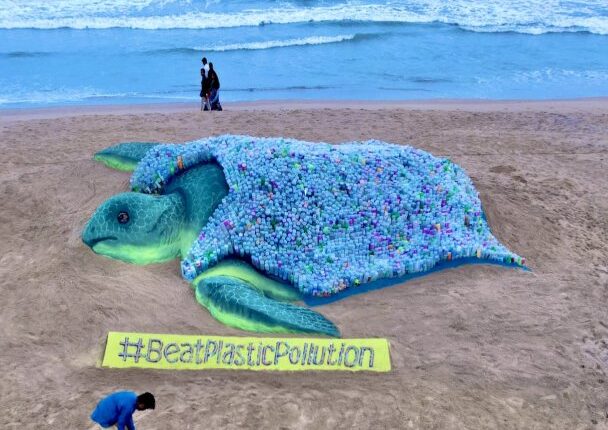Preventing Plastic Pollution: Collective Action is the only way
By Ritu Chhikara and KKDash
Introduction:
As we celebrate World Environment Day, it is imperative to reflect on the pressing issue of plastic pollution and take collective action to combat this global menace. The theme for this year’s World Environment Day, “Solutions to Plastic Pollution,” highlights the urgency to address this challenge and presents an opportunity for individuals, communities, and governments to come together and take collective actions to make a positive impact. There is a need to join hands in the global effort to #BeatPlasticPollution and curate local action as well for a sustainable future for our planet.
A Global Crisis:
Plastic pollution has reached alarming levels, contaminating our live saving oceans, rivers, and land. Every year, millions of tons of plastic waste end up in our ecosystems, causing irreparable harm to wildlife, degrading natural habitats, and polluting our water sources. The consequences of this plastic pollution crisis are not confined only posing significant risks to human health by disrupting ecosystems, and entering our food value chain, it has become a grave danger for animals, birds, marine life, and thereby for the interdependent biodiversity ecosystem of our environment. The plastisphere is slowly taking over the biosphere.
The Power of Individual Action:
While governments and corporations have a vital role to play in tackling plastic pollution, individual actions can also make a significant difference. We must rethink our relationship with plastic and adopt more sustainable practices in our daily lives. By reducing our consumption of single-use plastics, embracing reusable alternatives, recycling responsibly, and raising awareness in our communities, we become catalysts for change.
Government Responsibility and Policy Measures:
Governments must recognize their responsibility in addressing plastic pollution and implement comprehensive policy measures to combat it. These include banning or limiting single-use plastics, promoting the use of sustainable alternatives, implementing effective waste management systems, and supporting research and innovation for eco-friendly materials. By fostering a regulatory environment that incentivizes sustainable practices and holds corporations accountable for their plastic waste, governments can lead the way towards a plastic pollution-free future.
Collaboration and Industry Engagement:
The fight against plastic pollution requires the active involvement of the private sector, as businesses have a significant influence on the production, distribution, and disposal of plastic. Companies should embrace their responsibility by adopting sustainable packaging, implementing recycling programs, and investing in research and development for innovative solutions. Collaboration between governments, businesses, and civil society organizations is crucial to driving systemic change and creating a circular economy where plastic waste is minimized and materials are reused or recycled.
Education and Awareness:
Creating a lasting impact on plastic pollution necessitates a shift in societal attitudes and behaviors. Education and awareness campaigns play a vital role in inspiring individuals to make sustainable choices and understand the consequences of their actions. By integrating environmental education into curricula, promoting public awareness campaigns, and engaging communities in clean-up initiatives, we can foster a culture of environmental stewardship and empower future generations to protect our planet.
Conclusion:
On this World Environment Day, let us unite in the global effort to #BeatPlasticPollution. By recognizing the urgency of the plastic pollution crisis and embracing sustainable alternatives, we can protect our ecosystems, preserve biodiversity, and safeguard the health of our planet and future generations. Each one of us has the power to make a difference through our actions, choices, and advocacy. Together, let us commit to a plastic pollution-free world, where the beauty and abundance of nature are preserved for all to enjoy.
The authors are Head (Research) and Senior Fellow at the Centre for Sustainability Research and Advocacy (CSRA), BML Munjal University, respectively. Opinion shared is personal.

